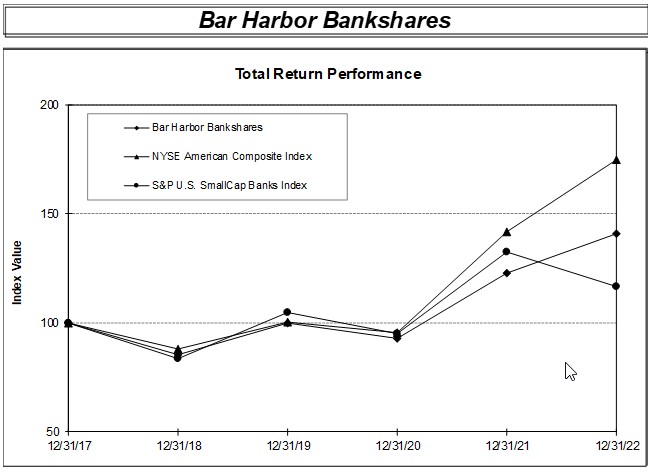a result of asset liability management strategies or in response to liquidity needs, we would be required to recognize these losses and the recognition of those losses could materially and adversely affect our results of operations, capital and financial.
Impairment of investment securities or goodwill could result in a negative impact on our results of operations.
In assessing whether the impairment of securities is related to a deterioration in credit factors, we consider the length of time and extent to which the fair value has been less than cost, the financial condition and near-term prospects of the issuer, and the intent and ability to retain the securities for a period of time sufficient to allow for any anticipated recovery in fair value in the near term.
Under current accounting standards, goodwill is not amortized but, instead, is subject to impairment tests on at least an annual basis or more frequently if an event occurs or circumstances change that reduce the fair value of a reporting unit below its carrying amount. A decline in our stock price or occurrence of a triggering event following any of its quarterly earnings releases and prior to the filing of the periodic report for that period could, under certain circumstances, require performance of a goodwill impairment test and result in an impairment charge being recorded for that period which was not reflected in such earnings release. During 2022, our annual impairment test conducted in October, using discounted cash flows and market based approaches, indicated that the estimated fair value of our sole reporting unit “Bar Harbor Bank & Trust” exceeded the carrying value. In a future assessment, we could conclude that all or a portion of our goodwill is impaired, which would result in a non-cash charge to earnings.
Revenues from our wealth management business are significant to earnings.
Generating returns that satisfy customers in a variety of asset classes is important to maintaining existing business and attracting new business. Administering or managing assets in accordance with the terms of governing documents and applicable laws is also important to client satisfaction. Failure in either of the foregoing areas can expose us to liability, and result in a decrease in revenues and earnings.
Our wealth management business may be negatively affected by changes in economic and market conditions.
A decline in economic conditions, such as recession, economic downturn, and/or inflationary conditions, changes in domestic and foreign economic conditions, volatility in financial markets, and general trends in business and finance, all of which are beyond our control, could adversely impact the market value of wealth management assets under management, which are primarily marketable securities, and the fee revenues derived from the management of these assets.
Strategic and External Risks
Changes and instability in economic conditions, geopolitical matters and financial markets, including a contraction of economic activity, could adversely impact our business, results of operations and financial condition.
Our success depends, to a certain extent, upon global, domestic and local economic and political conditions, as well as governmental monetary policies. Conditions such as changes in interest rates, money supply, levels of employment and other factors beyond our control may have a negative impact on economic activity. Any contraction of economic activity, including an economic recession, may adversely affect our asset quality, deposit levels and loan demand and, therefore, our earnings. In particular, interest rates are highly sensitive to many factors that are beyond our control, including global, domestic and local economic conditions and the policies of various governmental and regulatory agencies and, specifically, the Federal Reserve Bank (“FRB”). Throughout 2022 the Federal Open Market Committee (“FOMC”) raised the target range for the Federal funds rate on seven separate occasions and-citing factors including the hardships caused by the ongoing Russia-Ukraine conflict, continued global supply chain disruptions and imbalances, and increased inflationary pressure-the FOMC has indicated that ongoing increases may be appropriate.
The tightening of the FRB's monetary policies, including repeated and aggressive increases in the target range for the Federal funds rate as well as the conclusion of the FRB's tapering of asset purchases, together with ongoing economic and geopolitical instability, increases the risk of an economic recession. Although forecasts have varied, many economists are projecting that U.S. economic growth will slow and inflation will remain elevated in the coming quarters, potentially resulting in a contraction of U.S. gross domestic output in 2023. Any such downturn, especially domestically and in the regions in which we operate, may adversely affect our asset quality, deposit levels, loan demand and results of operations.


